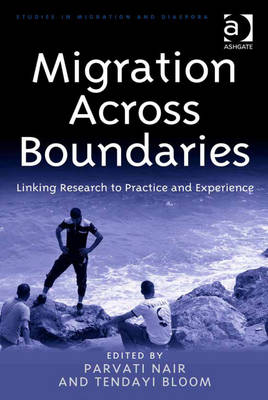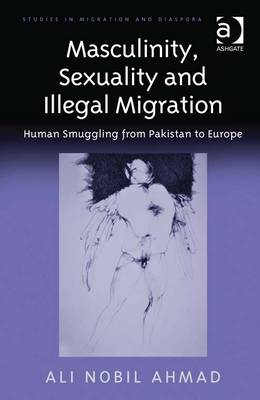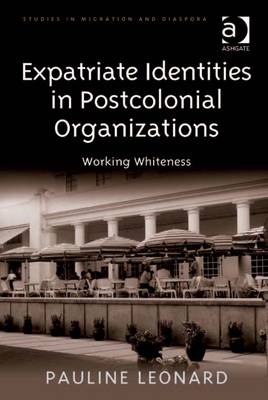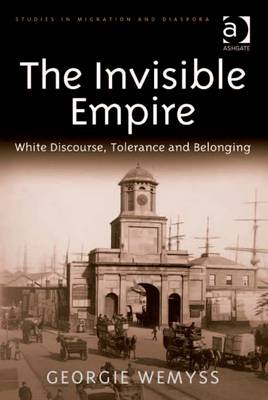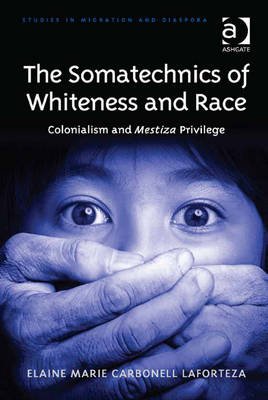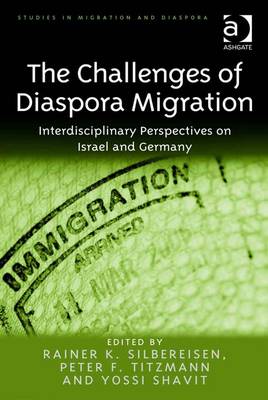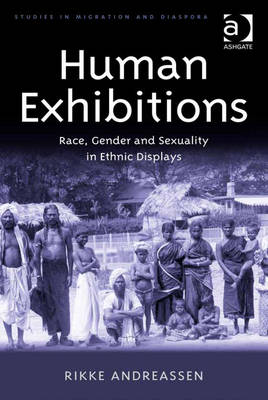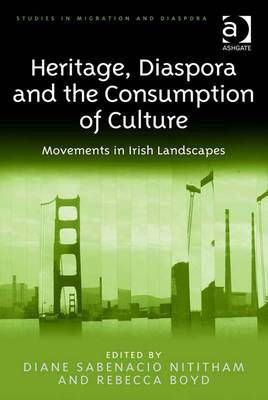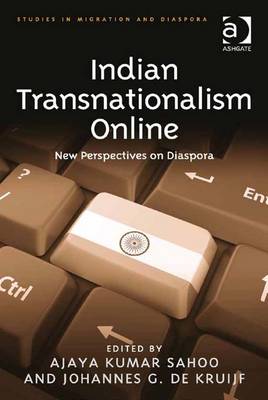Studies in Migration and Diaspora
10 total works
A longitudinal, intersectional study of migrant women, this book examines the lives of first generation Bangladeshi migrants to the UK, considering the dynamic relationship between people and place. Shedding new light on a migrant population about which little is known, the author explores the experiences of women who left rural homes to live in London, speaking no English, with no experience of local customs and having to adjust to what would now be dramatically shrunken family sizes, within which they would act as bearers of culture and tradition.
Based on research spanning a decade Family, Citizenship and Islam draws on qualitative interviews with over 100 women and examines questions of identity, belonging, citizenship and Britishness, religion, ageing, care, and the family. With attention to the fluidity of the experiences of the first generation of migration women, the book offers an alternative to much ethnographic research, which often offers only a `snapshot’ of a particular minority or migrant group as fixed and preserved in time.
As such, Family, Citizenship and Islam will appeal to scholars of sociology, geography and anthropology with interests in migration and diaspora, citizenship, gender, religion, family and the lifecourse, and the ways in which these different aspects of a person’s life come together to shape lived experience.
Migration Across Boundaries
Bringing together scholars and practitioners from a range of disciplinary backgrounds working in Europe, North and South America, South Asia and the Middle East, this volume explores the question of how to ensure that migration research feeds back into improving the lives of migrants. It emphasises the necessarily interdisciplinary and cross-boundary nature of migration research, offering methodological recommendations to anyone studying or working in the field, and showing how migration studies can usefully affect real contexts by better exploring the potential that exists for both bridging academic disciplines and building links with work that occurs beyond strictly academic forums.
Organised around the themes of methodological considerations and interdisciplinary approaches, the experiences of migrants as researchers and interaction between practitioners, policy-makers and academics, Migration Across Boundaries discusses the realities of the discourses that surround international migration, examining the proper role of academia in bringing together a range of stakeholders to formulate dialogic approaches to understanding migration.
An international and interdisciplinary contribution to our understanding of how research in migration can be brought to bear on the experiences of migrants and linked to the work of activists, artists and policy-makers, this book will appeal not only to scholars and students of migration across the social sciences, but also to those working in the fields of migrant advocacy and activism.
Masculinity, Sexuality and Illegal Migration makes use of extensive new empirical material to explore the phenomena of migration, human smuggling and illegal work, in order to develop a compelling account of international migration, linking it with irrational, risky economic behaviour and male sexual desire. Interviews conducted with successive waves of Pakistani immigrants in the UK and Italy, together with ethnographic fieldwork amongst local journalists, immigration officials and smugglers in Pakistan, serve as the basis for an interdisciplinary comparative analysis of illegal migration across time and space.
Challenging the received idea that labour migration is driven purely by rational economic forces, Masculinity, Sexuality and Illegal Migration draws upon psychoanalytic social theory to examine the roles of masculinity and irrationality in the decision to migrate, thus stimulating a more complex debate about migration's causes and consequences. The arguments it makes raise wider questions about the folly of thinking about economic concerns in isolation from other aspects of human experience. As such, this book will appeal to those with research interests in economics, social theory, migration, gender and sexuality, and race and ethnicity.
Expatriate Identities in Postcolonial Organizations offers a timely and contemporary discussion of the role of organizations in maintaining or challenging structures and cultures based on racism and discrimination. It offers a key exploration of the relations between whiteness, identity and organization in migratory contexts.
It delves into the experiences of expatriates in Hong Kong and the ways in which new identities are constructed in the destinations of migration by exploring the renegotiation of white identities and racialized relationships, and the extent to which colonial imaginations still inform contemporary organizations.
By drawing on existing theoretical and empirical material on post-colonialism, identity-making, privileged migration, relocation, transnational work and organizations, this volume brings disparate discussions together in a new and accessible way. It will appeal to a range of sociology scholars as well as to those working in the fields of migration, gender studies, and cultural geography.
This book offers a significant and original contribution to critical race theory. Georgie Wemyss offers an anthropological account of the cultural hegemony of the West through investigations of the central and pivotal constituent of the dominant white discourse of Britishness – the Invisible Empire.
She demonstrates how the repetitive burying of British Empire histories of violence in the retelling of Britain’s past works to disguise how power operates in the present, showing how other related elements have been substantially reproduced through time to accommodate the challenges of history.
The book combines ethnographic and discourse analysis with the study of connected histories to reveal how the dominant discourse maintains its dominance through its flexibility and its strategic alliances with subordinate groups.
Investigating the emergence of a specific mestiza/mestizo whiteness that facilitates relations between the Philippines and Western nations, this book examines the ways in which the construction of a particular form of Philippine whiteness serves to deploy positions of exclusion, privilege and solidarity.
Through Filipino, Filipino-Australian, and Filipino-American experiences, the author explores the operation of whiteness, showing how a mixed-race identity becomes the means through which racialised privileges, authority and power are embodied in the Philippine context, and examines the ways in which colonial and imperial technologies of the past frame contemporary practices such as skin-bleaching, the use of different languages, discourses of bilateral relations, secularism, development, and the movement of Filipino, Australian and American bodies between and within nations.
Drawing on key ideas expressed in critical race and whiteness studies, together with the theoretical concepts of somatechnics, biopolitics and governmentality, The Somatechnics of Whiteness and Race sheds light on the impact of colonial and imperial histories on contemporary international relations, and calls for a `queering’ or resignification of whiteness, which acknowledges permutations of whiteness fostered within national boundaries, as well as through various nation-state alliances and fractures. As such, it will appeal to scholars of cultural studies, sociology and politics with interests in whiteness, postcolonialism and race.
The Challenges of Diaspora Migration
Diaspora or 'ethnic return' migrants have often been privileged in terms of citizenship and material support when they seek to return to their ancestral land, yet for many, after long periods of absence - sometimes extending to generations - acculturation to their new environment is as complex as that experienced by other immigrant groups. Indeed, the mismatch between the idealized hopes of the returning migrants and the high expectations for social integration by the new host country results in particular difficulties of adaptation for this group of immigrants, often with high societal costs.
This interdisciplinary, comparative volume examines migration from German and Jewish Diasporas to Germany and Israel, examining the roles of origin, ethnicity, and destination in the acculturation and adaptation of immigrants. The book presents results from various projects within a large research consortium that compared the adaptation of Diaspora immigrants with that of other immigrant groups and natives in Israel and Germany. With close attention to specific issues relating to Diaspora immigration, including language acquisition, acculturation strategies, violence and 'breaches with the past', educational and occupational opportunities, life course transitions and preparation for moving between countries, The Challenges of Diaspora Migration will appeal to scholars across the social sciences with interests in migration and ethnicity, Diaspora and return migration.
From the 1870s to the second decade of the twentieth century, more than fifty exhibitions of so-called exotic people took place in Denmark. Here large numbers of people of Asian and African origin were exhibited for the entertainment and `education’ of a mass audience. Several of these exhibitions took place in Copenhagen Zoo, where different `villages’, constructed in the middle of the zoo, hosted men, women and children, who sometimes stayed for months, performing their `daily lives’ for thousands of curious Danes.
This book draws on unique archival material newly discovered in Copenhagen, including photographs, documentary evidence and newspaper articles, to offer new insights and perspectives on the exhibitions both in Copenhagen and in other European cities. Employing post-colonial and feminist approaches to the material, the author sheds fresh light on the staging of exhibitions, the daily life of the exhibitees, the wider connections between shows across Europe and the thinking of the time on matters of race, science, gender and sexuality.
A window onto contemporary racial understandings, Human Exhibitions presents interviews with the descendants of displayed people, connecting the attitudes and science of the past with both our (continued) modern fascination with `the exotic’, and contemporary language and popular culture. As such, it will be of interest to scholars of sociology, anthropology and history working in the areas of gender and sexuality, race, whiteness and post-colonialism.
Heritage, Diaspora and the Consumption of Culture
Using an interdisciplinary and transhistorical framework this book examines the cultural, material, and symbolic articulations of Irish migration relationships from the medieval period through to the contemporary post-Celtic Tiger era. With attention to people's different uses of social space, relationships with and memories of the landscape, as well as their symbolic expressions of diasporic identity, Heritage, Diaspora and the Consumption of Culture examines the different forms of diaspora over time and contributes to contemporary debates on home, foreignness, globalization and consumption.
By examining various movements of people into and out of Ireland, the book explores how expressions of cultural capital and symbolic power have changed over time in the Irish collective imagination, shedding light on the ways in which Ireland is represented and Irish culture consumed and materialized overseas.
Arranged around the themes of home and location, identity and material culture, and global culture and consumption, this collection brings together the work of scholars from the UK, Ireland, Europe, the US and Canada, to explore the ways in which the processes of movement affect the people's negotiation and contestation of concepts of identity, the local and the global. As such, it will appeal to scholars working in fields such as sociology, politics, cultural studies, history and archaeology, with interests in migration, gender studies, diasporic identities, heritage and material culture.
Indian Transnationalism Online
Present-day migration takes place in a world characterized by the compression of time and space, with cheaper air travel and the existence of new communication technologies - the internet in particular - making it easier to stay in contact with the places, people and cultures that one has left. This book investigates the online organization of, and exchanges within, the global Indian diaspora. Bringing together research from around the world and presenting studies drawn from the US, Europe and India, it engages with theoretical and methodological debates concerning the shaping and transformation of migrant culture in emerging sites of sociality, and explores issues such as religion, citizenship, nationalism, region and caste as they relate to Indian identity in global, transnational contexts.
With detailed empirical case studies showing both how members of the Indian diaspora connect with one other and `life at home’ and how institutions in India maintain such links, Indian Transnationalism Online sheds light on the ways in which information and communication technology functions as both a catalyst and indicator of contemporary socio-cultural change. As such it will be of interest to sociologists, anthropologists, political scientists and studies of cultural studies working in the areas of migration, transnationalism and ethnic studies.

